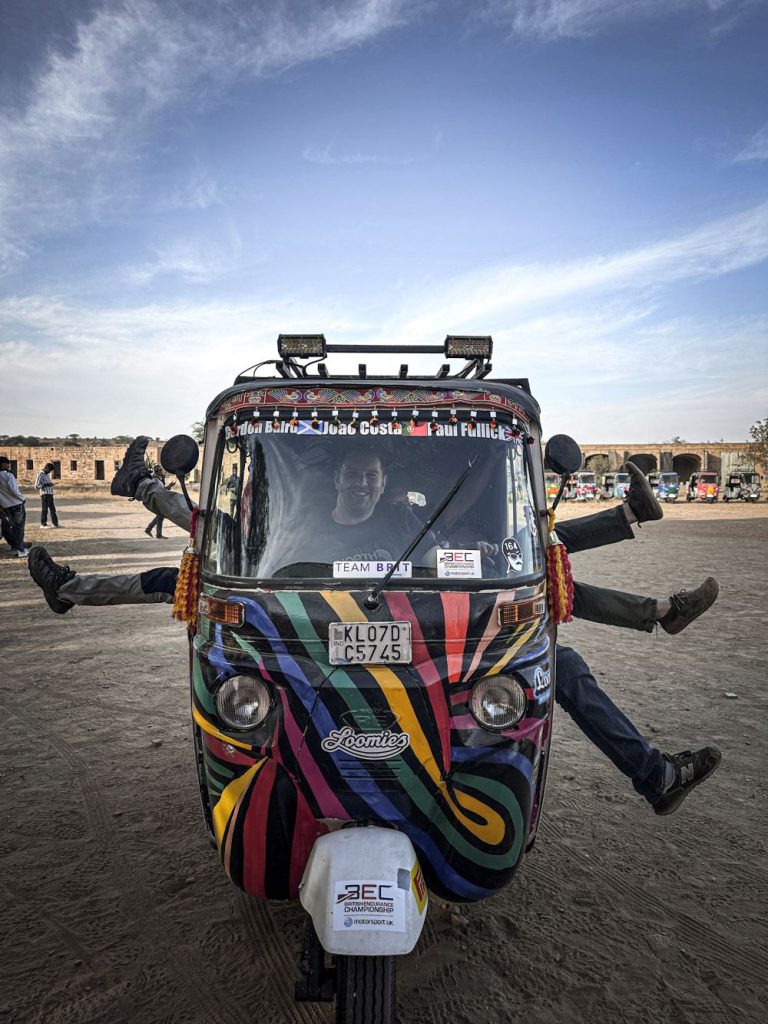Team Founder Dave Player shares his thoughts on the history of disability motorsport as part of Disability History Month:
We’re at the tail end of this year’s Disability History Month – an annual event focusing on the progress we’ve seen over the years when it comes to disability rights, understanding and inclusion.
It’s not an awareness month that garners a huge amount of attention – perhaps a reflection of the work that is still needed to bring these issues to the fore.
I of course have a strong interest in the history of disability in motorsport and now is a good time to reflect on where we are, where we’ve come from and what more there is to do.
2022 has seen another marker made in the sand when it comes to disability in racing. Our drivers Chris Overend and James Whitely took the title in the Britcar Trophy Championship making them the first ever team of all-disabled drivers to win a national racing championship.
This builds on Aaron Morgan and Bobby Trundley’s achievements as the first team of all-disabled drivers to compete in the British GT Championship.
I’m extremely proud that Team BRIT Is leading the charge today, but we are one team in a history of many determined British change makers who saw what was possible for disabled racers in motorsport and wanted to make a difference.
Back in the 1950s, Archie Scott-Brown was motorsport’s first disabled hero, battling diversity to compete and win. He won the British Empire Trophy in 1957 and some 71 race victories overall. Archie had one hand and severe leg disabilities after his mother contracted German Measles during pregnancy.
The great Sir Frank Williams who very sadly died in 2021, was a tetraplegic after a road accident but went on to establish Frank Williams Racing Cars and later Williams Grand Prix Engineering.
Marc Haynes was born with a degenerative spinal disorder and was wheelchair bound from the age of 5, was the first paraplegic to obtain a racing licence from the RAC Motor Sports Association, went on to establish the GT Cup and was part of the Haynes family – responsible for creating the iconic ‘Haynes manuals’.
Then there’s David Butler MBE, who was left disabled after picking up an unexploded bomb as a child. He was inspired by Archie Scott-Brown after seeing him race, and went on to lobby for changes to the licensing process for disabled drivers which remain in place today.
These are all incredibly influential people who have each played a part in the history of disability motorsport and I am proud to have picked up the baton, continuing what they began. Yes we’ve made a massive difference – but we’re still a long way from where we need to be to say that our sport is truly inclusive.
For example, the difference between the process a disabled person and an able-bodied person has to go through to get their race licence is staggering.
Until around seven years ago, disabled drivers had to acquire six non-competitive race signatures before they could sit their test for a race licence, incurring huge costs and a very long wait. Their able-bodied friends and peers could simply apply, take their test and receive their licence the same day.
David Butler has been hugely influential in making changes to the licensing process, which I have helped to support, but we’re still a long way from a level playing field.
Today, a disabled driver needs to first apply to MSUK so they can be assessed as to whether they are suitable or not to apply for a race licence. Once they are deemed suitable, they need a medical and an ARDS test – plus a video escaping from the car within 10 secs.
An able-bodied applicant can have their application fast-tracked to a 3hr or 3-day application for an extra fee. A disabled applicant needs at least two weeks. Yes safety has to be the overriding concern, but currently, we are not seeing a determination to design a process with safety and fairness being considered in equal measure.
Technology is enabling the most incredible opportunities when it comes to disability sport and motorsport is no exception.
We were featured on BBC Click last year alongside a piece on Sam Schmidt, a former Indy Car driver who was involved in an accident which left him quadriplegic. The piece showed him driving a car with suck / blow technology and using vision to direct steering. Incredible.
We’ve also seen French racing driver Frederic Sausset who lost all 4 limbs following an infection, racing in Le Mans and attempting an all-disabled team entry.
We of course have our world-leading hand control technology which has been continually refined over the last seven years to what it is today – an enabler. Our drivers can race together as a team seamlessly, against drivers who simply want to beat us.
Progress has been substantial but is it really what we would expect in 2022? We are the only team with disabled drivers in every championship we race in. We still have young disabled children attending races and saying to their parents “I could never do that”. It still often takes them to see us in our garage and to hear “yes you can” from our team to change that mindset.
Nothing would bring me greater joy than to be writing a blog on Disability History Month in 2023 and to be able to say our team tag line is no longer correct. I don’t want to be able to say we’re the only competitive team of all-disabled racing drivers in the world. I want to be part of a growing movement that is changing perceptions and normalising disability.
Let’s see what the next stage in our history brings.



